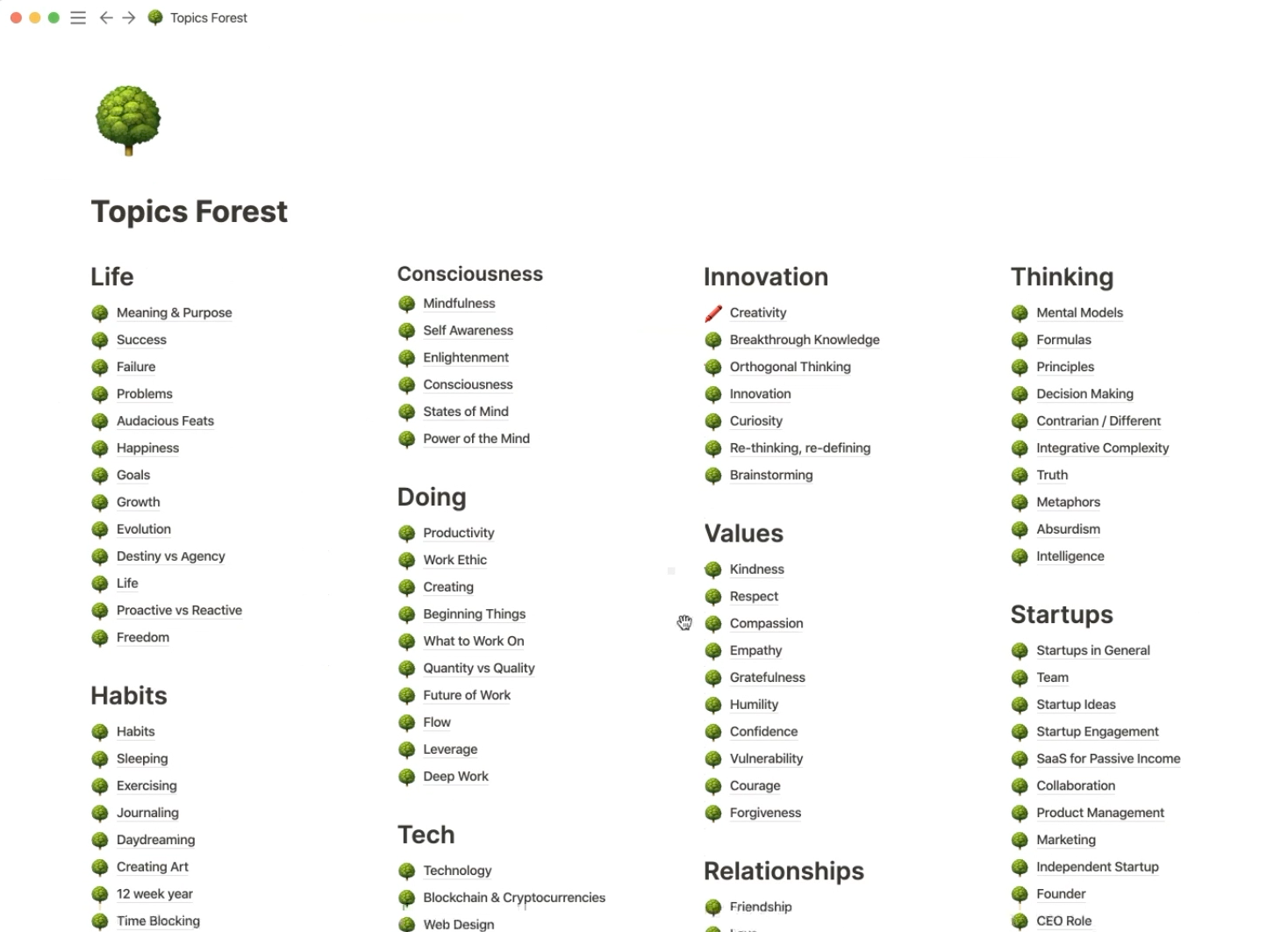Table of contents
Valentin is the co-founder of Monthly – an online course platform designed around hands-on one-month courses with creators from around the world – as well as a prodigious user and expert of Notion which we talk about extensively in this discussion. He has been given talks as well as been interviewed about his use of Notion and we spent much of the conversation going through Valentin’s Notion set up and how he extensively organises his life through the multi-purpose app.
Here are some of the highlights from our discussion:
"We should spend as much time thinking about the friction of our digital spaces as we do the design of our physical spaces".
People tend to have goals but goals are ideas of the future and therefore intangible. Compasses are things that you can hold in your hand and which you can use to point you in the right direction.
By having more of your life systems in one place or one piece of software, it reduces the friction for your whole system and workflow. The more you can simplify by using a single app, the more easily you can integrate it into your life.
Although we don’t want to be robotic over relationships, we can be more intentional about how we keep in touch with people. Christmas cards are a ten minute activity that maintains relationships for decades – even just that once a year moment can make a significant difference. Leaving relationships to chance means that we risk losing touch with friends which is inexcusable in an era where more tools than ever exist to facilitate communication.
Curating and storing information that resonates with you is incredibly valuable not only in serving as a reminder but also as a source of inspiration. Valentin has created a Topic Forest on Notion for this purpose:

It’s the skills that we pick up outside of our primary profession that enrich our lives in ways that we can’t imagine and innovation comes from bringing these new skills and ideas from disparate fields into one place.
It’s important to create effective systems that can take us in the right direction efficiently when we figure out which direction we want to go. It’s common not to know what direction you really want to go and if you are in a phase of exploring, it’s important to be working out how to create a system that allows us to get where we want to go faster when you do finally settle on a direction we want to move. Valentin uses the example of a boat and a map. The map is just static and will provide the guidance when you need it but the thing that moves you places and the thing that you can always improve is the boat. The boat represents our tools, systems, habits, relationships etc – all the things that are around us that help us to move, do things more comfortably and form the components of our overall system.

